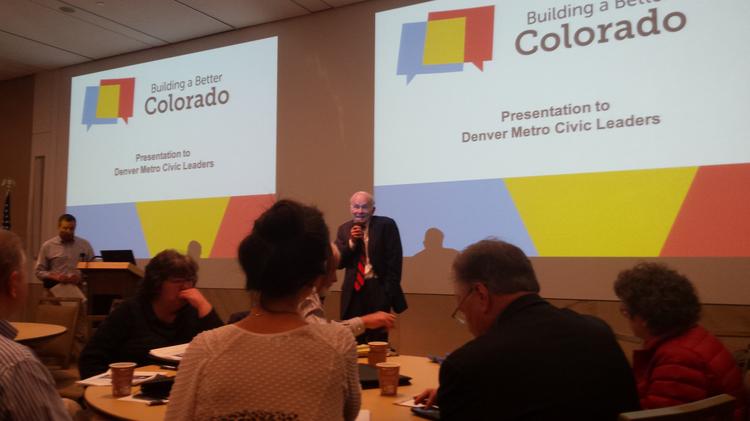Colorado has never seen an advertising and public relations campaign like it: Trying to stop an initiative before it gets to the ballot.
 The campaign urging citizens to “think before you ink” is being sponsored by advocacy groups financed by the oil and gas industry. It is aimed at a couple of pending proposals that would severely restrict drilling in Colorado.
The campaign urging citizens to “think before you ink” is being sponsored by advocacy groups financed by the oil and gas industry. It is aimed at a couple of pending proposals that would severely restrict drilling in Colorado.
Proposition 75 would grant local governments the power to regulate, even effectively ban, drilling for oil and gas. Prop 78 would require that new oil and gas wells be at least 2,500 feet from occupied structures — a restriction that the industry claims would ban new wells from 90 percent of the land in the state.
We’re not likely to find out whether the campaign has worked or not until petitions are turned in by the Aug. 8 deadline.
But the campaign is already being blamed in part for the failure of an unrelated anti-TABOR initiative which was withdrawn this week by its sponsors. It would have permitted the state government to keep revenues collected above the spending limits imposed by the Taxpayer’s Bill of Rights for the next 10 years. Instead of returning the money to taxpayers, the state would spend it on public education, transportation and mental health.
Backers of Prop 117 were “unable to raise the large amount of money necessary to gather enough signatures to qualify” for the ballot, Lisa Weil of Great Education Colorado told the Denver Business Journal.
Maria Garcia Berry, a political consultant who had been helping Weil and others promote 117, told me its death was “collateral damage” inflicted by the oil and gas industry’s campaign urging citizens to look more closely at the anti-drilling initiatives now circulating.
But that’s not all, she said. The oil and gas industry has effectively driven up the cost of collecting signatures by “conflicting out” just about every major signature gathering company in Colorado — Black Diamond Outreach, Kennedy Enterprises, Taylor Petition Management, to name a few. They’ve been reserved by the drilling industry or being used to circulate other initiatives it likes, such as Prop 96, which would make it more difficult to pass a state constitutional amendment.
Someone at Pac/West Communications, an Oregon-based firm retained by the oil and gas industry, dreamed up the idea of running TV ads urging citizens to think twice before signing a petition. If successful, it would reduce general election expenses considerably but since the industry has spent so many millions on PR already, it might hardly notice.
“Professional signature gatherers are hired guns who get paid when you sign their petition,” begins the latest TV spot. “Every signature is money in their pocket, which explains the effort to ban oil and natural gas development here.” Continue reading →






